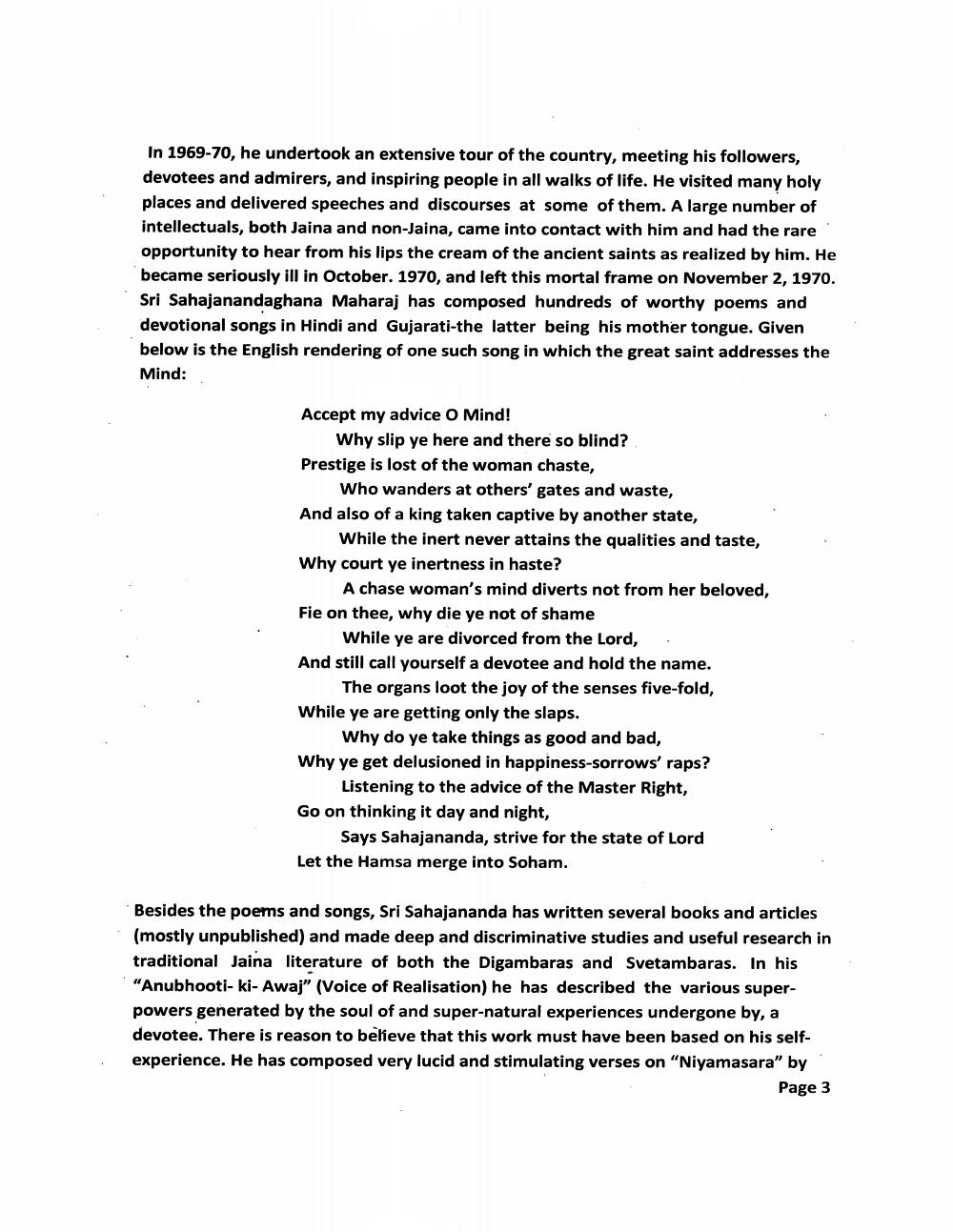Book Title: Sahajanandaghana Gurugatha Author(s): Pratap J Tolia Publisher: Vardhaman Bharati International Foundation View full book textPage 4
________________ In 1969-70, he undertook an extensive tour of the country, meeting his followers, devotees and admirers, and inspiring people in all walks of life. He visited many holy places and delivered speeches and discourses at some of them. A large number of intellectuals, both Jaina and non-Jaina, came into contact with him and had the rare opportunity to hear from his lips the cream of the ancient saints as realized by him. He became seriously ill in October. 1970, and left this mortal frame on November 2, 1970. Sri Sahajanandaghana Maharaj has composed hundreds of worthy poems and devotional songs in Hindi and Gujarati-the latter being his mother tongue. Given below is the English rendering of one such song in which the great saint addresses the Mind: Accept my advice O Mind! Why slip ye here and there so blind? Prestige is lost of the woman chaste, Who wanders at others' gates and waste, And also of a king taken captive by another state, While the inert never attains the qualities and taste, Why court ye inertness in haste? A chase woman's mind diverts not from her beloved, Fie on thee, why die ye not of shame While ye are divorced from the Lord, And still call yourself a devotee and hold the name. The organs loot the joy of the senses five-fold, While ye are getting only the slaps. Why do ye take things as good and bad, Why ye get delusioned in happiness-sorrows' raps? Listening to the advice of the Master Right, Go on thinking it day and night, Says Sahajananda, strive for the state of Lord Let the Hamsa merge into Soham. Besides the poems and songs, Sri Sahajananda has written several books and articles (mostly unpublished) and made deep and discriminative studies and useful research in traditional Jaina literature of both the Digambaras and Svetambaras. In his "Anubhooti- ki- Awaj" (Voice of Realisation) he has described the various superpowers generated by the soul of and super-natural experiences undergone by, a devotee. There is reason to believe that this work must have been based on his selfexperience. He has composed very lucid and stimulating verses on "Niyamasara" by Page 3Page Navigation
1 2 3 4 5 6 7 8 9 10 11 12 13 14 15 16 17 18 19 20 21 22 23 24 25 26 27 28 29 30 31 32 33 34 35 36 37 38 39 40 41 42
